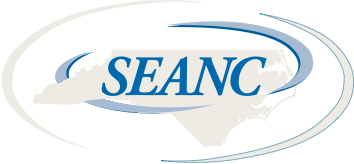Budget FAQs
The 2018-19 state budget is complicated. We have received many emails, calls and messages on social media from concerned members. Hopefully, this will help clear up some of the confusion. If you read through this and still have questions, contact SEANC at 1-800-222-2758.
When does this budget take effect?
The new budget will take effect on July 1, 2018. You should see changes in your July paycheck. Retirees whose retirement started on or before Sept. 1, 2018. will receive the 1 percent bonus on or before Oct. 31, 2018.
Will health insurance costs go up because of this raise?
No. Premiums for the State Health Plan are not set by the legislature, but by a board of trustees. State Treasurer Dale Folwell has said publicly that there will be no premium increases for the State Health Plan for three more years. To accomplish this, Folwell has asked Blue Cross Blue Shield to cut provider rates by 15 percent, which will save up to $1 billion over the next three years.
Folwell also announced in May that that the plan has negotiated lower rates with UnitedHealthcare for 2019 for Medicare-eligible retirees with Group Medicare Advantage Plans, saving nearly $55 million.
Do all correctional personnel get the 4 percent raise, or just officers?
Budget language created some confusion on this point. Legislative leaders have assured SEANC that all correctional personnel will receive the 4 percent raise, and that language will be clarified in the legislation before the session adjourns.
Do correctional personnel get 2%, 4% or 6%?
All Correctional personnel will receive a 4 percent raise. They do not receive the 2 percent raise in addition to that amount.
What is the 100% funding of the retirement system?
Full funding for the retirement system refers to the employer contribution, not the employee contribution of 6 percent that workers put in. The state’s actuaries determine the annual required contribution that the legislature must spend to keep the system solvent each year. This budget requires the state to put in 12.29 percent, more than double what employees contribute.
Does this include teaching assistants, custodians, cafeteria workers and other non-certified school employees?
Non-certified school employees were not included in the $31,200 minimum salary. However, they will receive the 2% increase.
Will the employees that are moved up to $31,200 also get the 2% increase?
The budget stipulates that employees will get either the increase to $31,200 annually, or 2 percent, whichever is greater. Employees will not receive both.
How does differential pay work and how much would it be?
If you are assigned to minimum and are required to work medium, you will receive 10% during the time you work medium. If you are assigned to minimum and are required to work close, you will receive 20% during the time you work close. If you are assigned to medium and are required to work close, you will receive 10% during the time you work close.
Who gets the five bonus days and how long do they last?
State employees who are covered under the SHRA (formerly SPA). The five bonus days are bankable, however, you cannot cash them in or use them towards retirement.
Who are the "permanent employees covered by the State Human Resources Act"?
This refers to workers at state departments, such as DHHS, DOT, etc., as well as some university staff.
The minimum salary is increasing to $31,200. What about veteran employees who have advanced in their positions?
There is no question that raising the minimum salary to $31,200 will create some wage compression, particularly with employees in the $31 - $50K range. This means that when the legislature comes back in January, we will need to work hard as an organization to convince lawmakers to adjust the salary schedule for the rest of state government.
